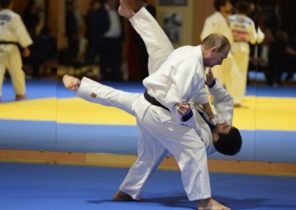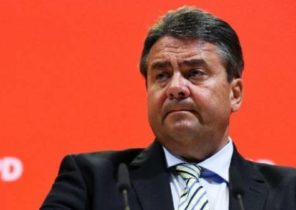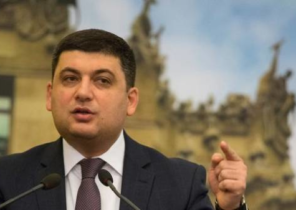
Critics of President Donald trump constantly underestimated his political skills — perhaps due to the fact that it differs greatly from its predecessors such as Franklin D. Roosevelt and Ronald Reagan. In the end, Roosevelt and Reagan were known as “great communicators”.
Although large segments of American society they hated, Roosevelt and Reagan treated the American people as a whole and tried to enlist the support of the center. Trump, by contrast, seeks above all to please the minority that elected him. His inaugural address sounded like a campaign speech. After the inauguration of a series of false statements and provocative orders have undermined the credibility of the centre, but has strengthened his position among those who voted for him.
Communication skills trump was honed in the world of reality shows, where the outrageous and provocative statements entertained the audience and increase ratings. He used this strategy in the primaries of the Republicans to attract attention among the 17 candidates in the election race. According to some estimates, trump received a free television advertising in the amount of two billion dollars, which is incomparable with 100 million dollars spent on advertising, his rival in the party, Jeb Bush.
After trump got the nomination from the Republican party, many expected that he would go the traditional route, moving toward the political center for the General election. He again defied expectations and populist campaign has focused on segments of the population who have lost their jobs in the global competition or have been angered by cultural changes that have occurred over the last several decades. This populist appeal was effective and purposefully used, and he won the vote of the electoral College, despite losing almost three million votes in the General election. At the same time without 100’s of thousands of votes from the three States of the “rust-belt” he would not be President.
Given this, many observers expected after his inauguration, he will focus on the political center. But trump again went against all the experts, continuing to focus on its traditional voters. Some suggest that he sought to build a new populist party of the voters of the working class (the former so-called Reagan Democrats) and the Republican “tea Party”.
Trump also received non-traditional in their choice of communication tools. New technologies open up new possibilities. Roosevelt used extensive maintenance of public “conversations with people” made possible by radio. Reagan was a master of pre-prepared speeches shown on television. In the preparation of the performances his team have focused on one main issue on the agenda of the White house at the time. Trump during the election campaign in addition to workshops to performances on cable television used Twitter to circumvent his team and the press to shape public opinion.
To the surprise of many, trump has continued this practice in the White House. The use of Twitter was not something new — Obama had the account, who led a staff — but the personal involvement of trump’s forced to think about how to report a political “lightning” from the White house and explain complex political issues (such as nuclear weapons) in 140 characters. However, “governance through Twitter” has allowed Trump to keep in touch with his electorate and to focus on yourself, and to bring to the people their messages, bypassing Congress and the press.
Over time, political communication is changing. There are many ways of effective communication. The ancient Greeks had schools of rhetoric, hone their skills of speaking in front of assemblies. Cicero made an impression in the Roman Senate, after studying the art of oratory. Woodrow Wilson’s childhood was not a gifted student, but he excelled in the study of oratory, as it was considered it is extremely important to leadership. Winston Churchill often attributed his success to the skill building “English sentences”. Martin Luther king, Jr. used the fact that he was raised in an African-American Church traditions with their rhythmic sermons.
One it is easier than others. Mario Cuomo, former Governor of the state of new York, once likened bill and Hillary Clinton. “She is supporters of the method, and he is more artistic.”
However, the oratory and rhetoric are not the only forms of effective political communication. Nonverbal cues are also an important component. Some charismatic leaders have not been great orators. An example of this yavlyaetsyato Mahatma Gandhi. However, the symbolic value of a simple peasant clothes and lifestyle Gandhi was louder than words. If you compare the image of the Mature Gandhi with his images in his youth, when he was dressed as a British lawyer, it is possible to see how carefully he thought through symbolic communication.
We can say that the same did trump. Consider a red baseball cap his campaign with a call “to make America great again” and its fixation on the branding when he was a businessman, and his use of Twitter.
In addition to the rhetorical and symbolic communication with the audience located at a far distance, leaders need the ability to communicate one-on-one or in small groups. In some cases, this close communication is more important than rhetoric. Organizational skills — the ability to attract and manage an effective office — difficult to combine with the office via Twitter. Harry Truman was a modest orator, but compensated for the lack of these skills by engaging and skillful management of a stellar team of advisors.
Supply the correct example is another crucial form of communication for leaders. Anticipating a skeptical public reaction to the increase in salaries of public officials in 2007, Prime Minister Lee Hsien Loong announced that he would abstain from increasing their own salaries. From the point of view of characters associated with the conflicts of interest that trump had not yet mastered the art of political communication.
To date trump has proven to be more effective political Communicator than his critics expected. But will he be able to succeed in the long term, with its non-standard approach? This is one of the most important issues for its leadership.
Joseph Nye, former Deputy Secretary of defense, Chairman of the National intelligence Council of the United States, Professor at Harvard University. One of his last works — “the Future of power” (The Future of Power).






